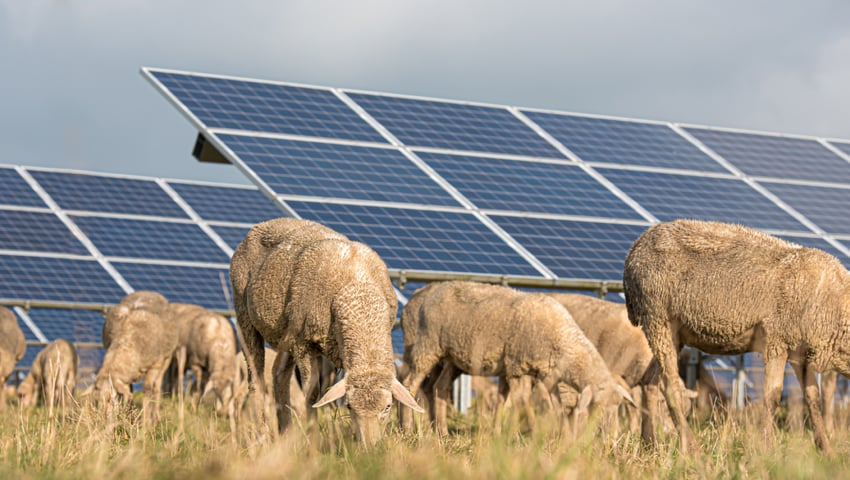Martin Lines, Chief Executive of the Nature Friendly Farming Network, has pushed back against critics of solar arrays on farm land. Writing on LinkedIn he said that solar panels take up a small proportion of farm land and offer extensive benefits to farmers and communities.
He said, “I’m seeing lots of concerns about solar panels on farms so here are some of my thoughts. Let’s clear the air: if we do it right, solar energy presents a huge opportunity—not just for farmers, but for entire communities.
“Our farms can do more than just feed people. With solar panels, we can energise our communities with clean, local energy. It’s about using our land to strengthen local resilience, not just the national grid.
“The advantages of solar farms are significant. They allow us to graze livestock, enhance biodiversity, and produce energy simultaneously, benefiting both agriculture and energy sectors.
“We used around 121 thousand hectares in 2020 for energy crops and the area used has continued to increase. Switching to solar means less soil disruption and lower reliance on fossil fuels. Plus, after 20 years, these lands can revert to agricultural use.”
Lines pointed to Defra statistics from 2020, which show that 121,000ha of agricultural land was used for bioenergy crops, including 29,000ha of wheat, 7,000ha of sugar beet used for biofuels and 5,000ha of maize used for anaerobic digestion.
Lines said, “Solar farming could be key to our food security strategy. Agrivoltaics support biodiversity, better water management, and improved soil quality. Land under solar panels can rest and recover, returning more fertile than before.
“According to New Scientist, sheep thrive alongside solar panels, enjoying more grazing time, better rest, nutritious food, and reduced heat stress, proving that solar farms enhance animal welfare too.
“Critics claim solar farms threaten our farmland. But these installations occupy less than 0.1% of our land – half the space taken by golf courses! Let’s base our land use discussions on facts, not fears.
“We’re not choosing between food and energy; we’re choosing to use our resources more wisely and sustainably.”
